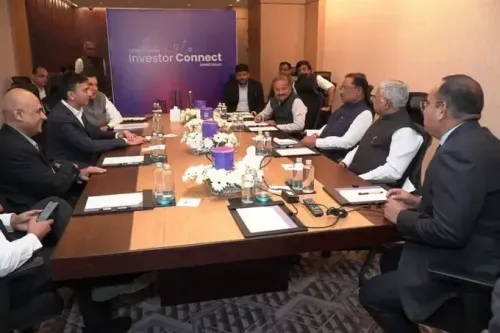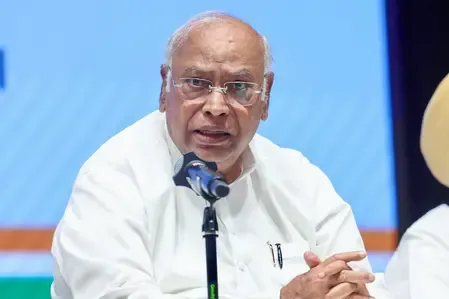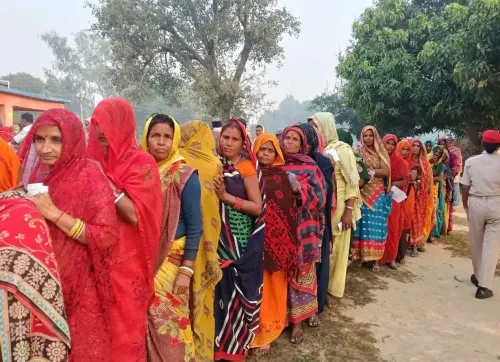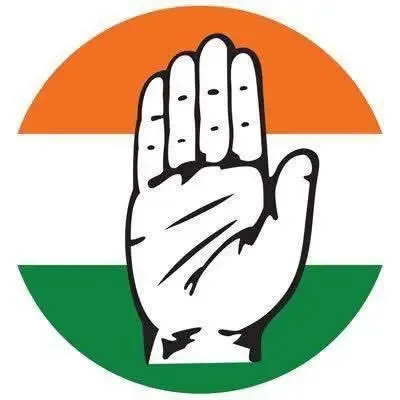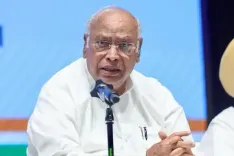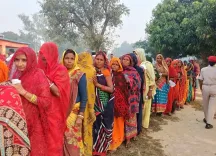Third Child Displays Signs of GBS in Jharkhand, Authorities on High Alert
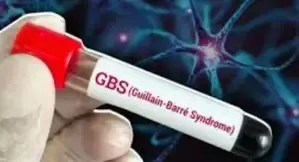
Synopsis
Key Takeaways
- Third child with GBS symptoms hospitalized.
- Two cases under treatment in private hospitals.
- Government sets up special wards for GBS patients.
- Timely treatment crucial for recovery.
- Public awareness about GBS is necessary.
Ranchi, Feb 6 (NationPress) A third child showing signs of Guillain-Barre Syndrome (GBS) has been hospitalized in Ranchi, increasing the number of suspected cases in Jharkhand to three. Two children are currently receiving care in private hospitals, while one is at the Rajendra Institute of Medical Sciences (RIMS), Ranchi.
The state’s health department surveillance team is actively monitoring all three patients, and civil surgeons throughout Jharkhand have been alerted to maintain vigilance.
Around ten days ago, a five-year-old girl was diagnosed with GBS at a private children’s hospital in Booty Mor, Ranchi. While her condition shows slight improvement, she remains confined to bed.
Another girl from Koderma was admitted to RIMS five days ago. Both children had recently traveled to Maharashtra with their families and fell gravely ill upon their return, suffering from nervous system complications.
Following the initial case reported on January 31, Jharkhand Chief Minister Hemant Soren held a high-level meeting with the Health Minister and senior officials, with deputy commissioners and civil surgeons from all districts participating via video call. The Chief Minister instructed officials to ensure prompt diagnosis and treatment for anyone showing symptoms of GBS.
In response, the government has established special wards across the state as a precaution, ensuring the availability of ventilators, oxygen supplies, and essential medications in these facilities.
Dr. Rajkumar, Director of RIMS, highlighted that while GBS is not contagious, timely treatment is essential. He also stressed the importance of raising public awareness regarding the condition.
It is worth noting that numerous cases of the syndrome have emerged in Maharashtra and Rajasthan. Medical professionals clarify that GBS is an autoimmune disorder that can severely impact the nervous system, potentially leading to paralysis in severe instances.
Experts assert that, although GBS is an autoimmune disorder affecting the nervous system, most patients can achieve full recovery with timely and appropriate care.
GBS is a critical illness that can escalate quickly, rendering the patient bedridden within days. It is associated with nerve damage that causes severe weakness in the limbs, trunk, and face, often following a bacterial or viral infection (like diarrhea from Campylobacter Jejuni or viral infections such as dengue or chikungunya) that can severely affect the nerves.
In individuals affected by GBS, the immune system erroneously attacks healthy nerves outside the brain and spinal cord, resulting in weakness and, in some cases, paralysis or even death.
GBS is exceedingly rare and is frequently triggered by gastrointestinal or respiratory infections.

